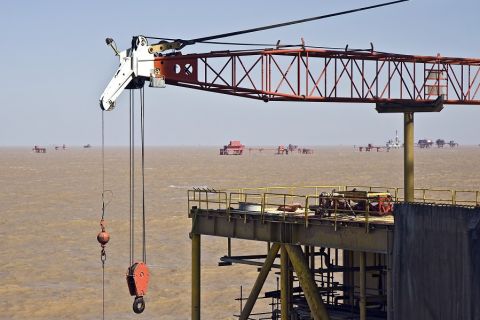By Julia Bell, Researcher, Energy in Depth As a fuel source, natural gas represents a rare combination of benefits: affordable, abundant, and clean. The White House has acknowledged this on several occasions, touting also the enormous job creation potential that responsible natural gas development can deliver. But for some, denying the facts about natural gas has become a profitable enterprise. The most notable example? The Sierra Club, which recently launched its “Beyond Natural Gas” campaign to stop development of this important source of energy. Ironically, it was also the Sierra Club that was touting the environmental benefits of natural gas just a few short years ago, back when natural gas was expensive and considered in short supply – we’ll let our readers extrapolate the meaning of that. Nonetheless, the facts are still the facts, and it’s telling that the Sierra Club’s new efforts against natural gas not only butt heads with well-established scientific facts about the processes used to extract it, but also with folks that they used to consider their allies – including President Barack Obama, whom the Sierra Club has cheerfully endorsed for reelection. The United Nations has even pointed out that expanded natural gas use can help the world’s poor and foster a cleaner global environment. And just this week, the Sierra Club received even more pushback for its activism against natural gas, this time from US Rep. Ed Markey (D-Mass.) and US Sen. Ron Wyden (D-Ore.). Discussing specifically the Sierra Club’s anti-natural gas campaign, Rep. Markey delivered a fairly clear rebuke: “I think environmentalists should want natural gas on the table as an option,” Markey said, adding later that he thinks it would “be wise for us to not take natural gas off the table.” When Sen. Wyden was asked about the Sierra Club’s “Beyond Natural Gas” campaign, he issued a similarly unequivocal rejection: “This is what I tell environmental folks: natural gas is really important to a lot of renewables, solar and wind, ensuring that option is out there.” In describing the environmental benefits, Wyden added, “Natural gas is the cleanest of the fossil fuels, so you start with that as your basic proposition.” So for those keeping score at home, those acknowledging the safety and benefits of natural gas development include President Obama, the US Environmental Protection Agency, the US Department of Energy, state regulators from across the country, independent experts from respected universities, and now even prominent members of Congress who are widely recognized for their work on environmental issues. Heck, even a study funded by the Sierra Club found natural gas to be a comparatively clean source of energy. On the other side? Hollywood, Josh Fox, and the Sierra Club. Gee, I wonder who we should believe?
Recommended Reading
CEO: Continental Adds Midland Basin Acreage, Explores Woodford, Barnett
2024-04-11 - Continental Resources is adding leases in Midland and Ector counties, Texas, as the private E&P hunts for drilling locations to explore. Continental is also testing deeper Barnett and Woodford intervals across its Permian footprint, CEO Doug Lawler said in an exclusive interview.
TotalEnergies Starts Production at Akpo West Offshore Nigeria
2024-02-07 - Subsea tieback expected to add 14,000 bbl/d of condensate by mid-year, and up to 4 MMcm/d of gas by 2028.
E&P Highlights: Feb. 5, 2024
2024-02-05 - Here’s a roundup of the latest E&P headlines, including an update on Enauta’s Atlanta Phase 1 project.
CNOOC’s Suizhong 36-1/Luda 5-2 Starts Production Offshore China
2024-02-05 - CNOOC plans 118 development wells in the shallow water project in the Bohai Sea — the largest secondary development and adjustment project offshore China.
US Drillers Cut Oil, Gas Rigs for First Time in Three Weeks
2024-02-02 - Baker Hughes said U.S. oil rigs held steady at 499 this week, while gas rigs fell by two to 117.




